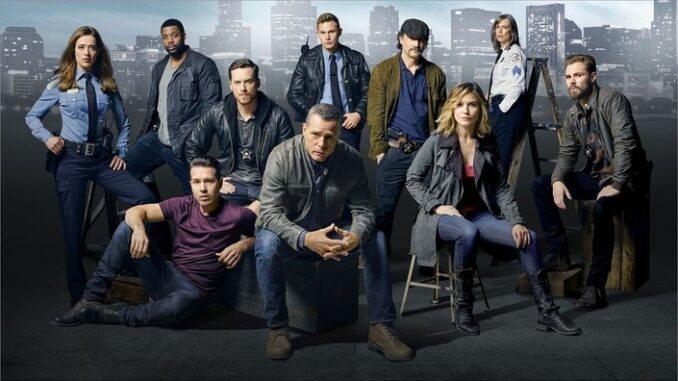
Sergeant Hank Voight: The Shadowed Throne of Chicago P.D.
In the gritty, unforgiving landscape of Dick Wolf’s Chicago, where the siren’s wail is a constant lament and justice often feels like a desperate whisper against a hurricane, stands Sergeant Hank Voight. He is not merely a character; he is a foundational pillar of the show, a moral paradox sculpted from the city’s very concrete. Voight embodies the chilling duality of power and darkness, not as opposing forces, but as two sides of the same tarnished badge, perpetually intertwined and utterly indispensable to his unique brand of law enforcement. To understand Voight is to confront the uncomfortable truth that sometimes, the light of justice must be fueled by the shadows.
From his initial menacing presence, introduced as a corrupt officer designed to test the moral fiber of others, Voight has evolved, yet his essence remains defiantly rooted in this complex contradiction. His power is undeniable, a palpable force that emanates from his stoic gaze, his gravelly voice, and the unwavering loyalty he commands. He is the quiet orchestrator, the chess master of the Intelligence Unit, whose calculated decisions often bend—or outright break—the rules, yet consistently yield results where conventional policing falters. His power isn’t derived from a pristine record or textbook adherence to protocol; it comes from an intimate understanding of Chicago’s underbelly, built on a network of informants, threats, favors, and a reputation that precedes him like a chilling wind. When Voight enters a room, a palpable shift occurs; suspects squirm, fellow officers defer, and even those in higher authority tread carefully, aware of the raw, untamed force he represents. He is the unwavering anchor for his team, a fiercely protective patriarch who, despite his methods, genuinely believes he is fighting for the greater good of his city and his people.
Yet, this formidable power is inextricably linked to a profound, unsettling darkness. Voight operates in the moral grey, a space where the ends invariably justify the means, no matter how brutal or illicit. He plants evidence, intimidates witnesses, roughs up suspects, and has, on more than one occasion, facilitated the “disappearance” of criminals who escaped the legal system. His interrogation room is less a place of questioning and more a crucible where the truth is extracted, often through psychological torment or veiled threats. The darkness in Voight isn’t merely a tactic; it’s a philosophy, a hardened shell forged by years of witnessing unspeakable evil and realizing that sometimes, to fight monsters, one must embrace a monstrous edge. His personal tragedies, particularly the death of his son Justin, only deepened this shadow, transforming his crusade into something both deeply personal and relentlessly unforgiving. He carries the weight of his actions, not with guilt, but with a weary conviction that they are necessary sacrifices on the altar of a brutal justice.
The most illustrative aspect of Voight’s character is how these two forces—power and darkness—coalesce to form a single, terrifyingly effective entity. His power is his darkness; it’s the willingness to cross lines others won’t, to engage with the criminal element on its own terms, that grants him the unparalleled leverage to solve the most heinous crimes. Conversely, his darkness fuels his power, providing the moral flexibility and psychological edge required to navigate the treacherous currents of urban crime. He is the shepherd who sometimes culls the flock, the surgeon who uses a blunt instrument to save the patient.
Consider the classic “Voight stare” – a quiet, intense gaze that strips away pretense and instills fear. This is not just a look; it’s a manifestation of his power, backed by the implicit threat of his dark capabilities. Or think of his infamous “ride-alongs” with suspects, where the conversation is less about law and more about a stark choice: cooperate or face unseen, but terrifying, consequences. These are the moments where the symbol solidifies: Voight as the necessary poison, the rogue element without whom Chicago P.D. would crumble under the weight of its own legal constraints.
In Hank Voight, Chicago P.D. presents a hero for a cynical age. He is a testament to the idea that true power can be found not in pristine virtue, but in the courage to descend into the abyss and fight fire with fire. His darkness is not a flaw to be overcome, but an integral component of his strength, making him a complex, often uncomfortable, but undeniably compelling symbol of justice delivered from the shadowed throne of a city that constantly demands its pound of flesh. He is a stark reminder that in the war against evil, some battles can only be won by those willing to walk the razor’s edge between right and wrong, holding the line with bloodied hands.
